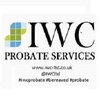Probate is the legal process of administering a deceased person's estate, ensuring that their debts are paid and their assets are distributed according to their will or the law. Valuing shares for probate is a crucial step in this process, as it determines the worth of the deceased's shareholdings in companies. Here's a comprehensive guide to understanding the significance of valuing shares for probate.
What is Probate?
Probate is the legal procedure that takes place after someone passes away, allowing for the orderly distribution of their assets and resolution of their debts under the supervision of the court.
What are Shares?
Shares represent ownership in a company. When someone owns shares in a company, they are entitled to a portion of the company's profits and have voting rights in shareholder meetings.
Why is Valuing Shares Important for Probate?
Valuing shares accurately is crucial for probate because it determines the value of the deceased's estate. This valuation affects how the estate is distributed among beneficiaries and how much inheritance tax is owed.
What Factors Influence Share Valuation?
Several factors influence the valuation of shares, including the company's financial performance, industry trends, market conditions, and any restrictions on the shares.
What Methods are Used to Value Shares?
Common methods used to value shares include the market approach, income approach, and asset-based approach. The appropriate method depends on factors such as the nature of the company and the availability of relevant information.
What is the Market Approach?
The market approach involves comparing the company's share price to similar publicly traded companies to determine its value. This method relies on market data and is often used for publicly traded companies with readily available information.
What is the Income Approach?
The income approach assesses the present value of the company's expected future cash flows, taking into account factors such as revenue, expenses, and growth projections. This method is suitable for valuing shares in companies with stable cash flows.
What is the Asset-Based Approach?
The asset-based approach calculates the value of the company's assets minus its liabilities to determine its net asset value. This method is commonly used for companies with substantial tangible assets, such as real estate or equipment.
What Challenges are Associated with Valuing Shares for Probate?
Valuing shares for probate can be challenging due to factors such as limited information about privately held companies, fluctuations in market conditions, and disagreements among beneficiaries over the value of the shares.
What Professionals Can Assist with Share Valuation for Probate?
Legal and financial professionals, such as probate attorneys, accountants, and valuation experts, can provide valuable assistance in valuing shares for probate. Their expertise can help ensure an accurate valuation that complies with legal requirements and minimizes disputes among beneficiaries.
In conclusion, valuing shares for probate is a critical step in the estate administration process. By understanding the importance of share valuation and the methods involved, individuals can navigate the probate process more effectively, ensuring that the deceased's estate is distributed fairly and in accordance with their wishes.


No comments yet